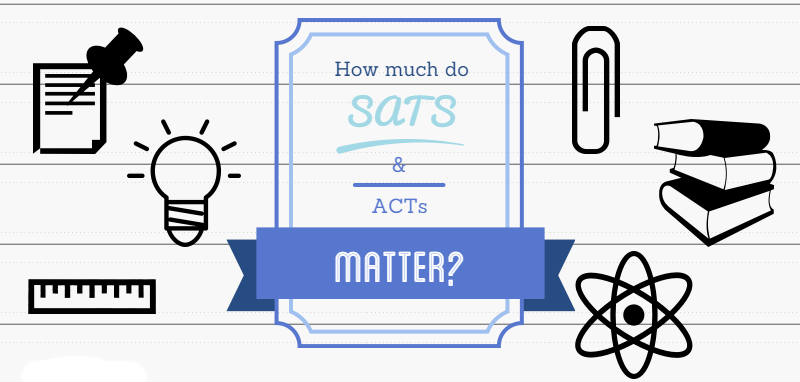A measure of my intelligence
January 20, 2016
Standardized tests often consume the spring of a high school student’s junior year and the fall of their senior year. After a test is taken, one of two things happen. One, when results are first released, hasty excuses are made for low scores and families race to the nearest computer to register for the next test. Or two, the student smiles as their family heads to their favorite restaurant to celebrate success. But are standardized tests, namely the SATs and ACTs, really a measure of a student’s intelligence? Is his or her success in college reflected in a number on the page?
First, let’s analyze what each test scores a student on.
SATs
The SAT is sanctioned by CollegeBoard, a non-profit organization that bridges high school students with colleges. It has three sections to it: Critical Reading, Mathematics, and Writing with an essay. Each correct answer is worth one point and each incorrect answer to a multiple-choice question is worth -0.25 points.
On March 5, 2016, the SAT essay will be optional and there will be no penalties for incorrect answers.
According to the CollegeBoard website, the SAT “tests what you already know,” “provides the opportunity for you to… learn more about your academic strengths,” and “helps you select the right fit for college.” It is, collectively, an “indicator of your academic readiness for college.”
Let me emphasize that.
An “indicator of your academic readiness for college.”
Those are large shoes to fill for a single test.
ACTs
The ACTs feature five sections: Mathematics, Reading, Science, English, and an optional Writing test. Each correct answer is worth one point and incorrect answers give no penalty.
The official ACT website reports that the ACTs are designed to “measure academic achievement in [the four sections]…”
This test is often praised for offering an optional writing section, yet many colleges only allow ACT scores to replace SATs if a student submits a writing score.
So what does this mean?
These tests are very similar, with the main difference being a science section for the ACTs. Each test really only tests on knowledge that is learned in the traditional classroom: English, math and science. So how is it measuring academic readiness for a college-bound student?
Where is an aptitude for engineering tested? How about a talent for the fine arts?
Will there be a painting section added to the SAT or an anatomy quiz attached to the ACTs? Probably not. These tests report only knowledge in traditionally required high school classes.
For the purposes of a general audience, perhaps only testing knowledge in common classes is the best path. A student who wants to pursue Computer Science likely wouldn’t enjoy struggling his or her way through a check on their remembrance of astronomy. The same would apply to a medical student being forced to write a persuasive essay.
Students excel in different areas and these talents may not come through in the scores of their ability to calculate geometric figures or comprehend literature excerpts. However, in theory, ordinary classroom lectures are taught to students since day one, so for the purpose of testing this type of intelligence, the SATs and ACTs may be meaningful.
For now, colleges continue to accept SAT and ACT scores as a piece of a prospective student’s application. However, according to the National Center for Fair & Open Testing, hundreds of colleges are becoming test-optional, that is, neither requiring nor suggesting for scores to be submitted as part of a college application.
So, does standardized testing measure your intelligence?














